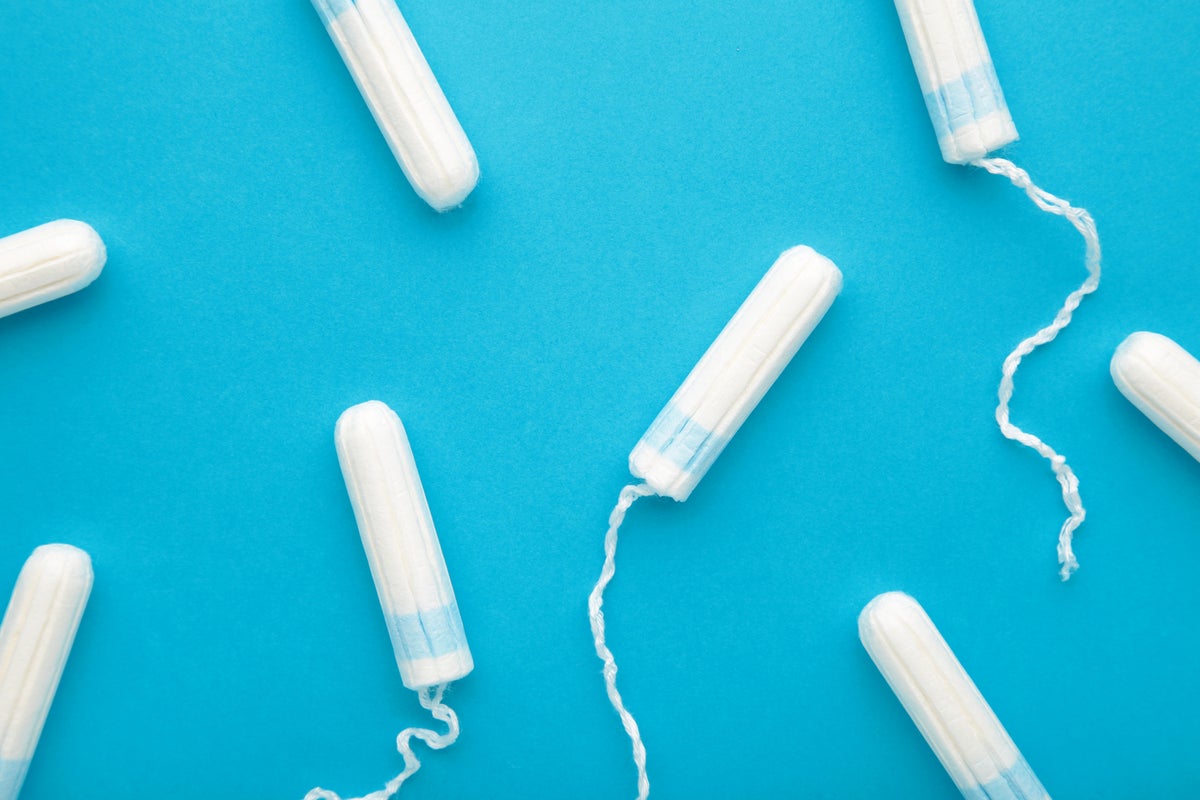
The number of women turning to food banks and charities for free pads and tampons in England and Wales has soared to record levels, new figures suggest.
Bloody Good Period, a charity that helps provide other organisations with pads and menstrual supplies, says it has seen a 43 per cent surge in monthly product requests – rising from almost 43,000 in January to June last year to more than 61,000 packs in the first half of 2023. It comes as women in the UK continue to face higher prices for period products despite the so-called tampon tax being axed nearly three years ago.
Rishi Sunak scrapped the VAT on period products on 1 January 2021, declaring they would no longer be classed as “luxury, non-essential items”. The government said the tax on sanitary products amounted to around £15m per year.
However, analysis by the think tank Tax Policy Associates of prices since then suggests that only a fraction of those tax savings have been passed onto customers, roughly £9m over three years, leaving an estimated shortfall of £36m.
Have you been affected by this? Email maya.oppenheim@independent.co.uk
Rachel Grocott, Bloody Good Period chief executive, said more people are enduring period poverty than ever before with the cost of living crisis having a severe and prolonged impact on Britons.
“We know that people are having to make impossible choices and for anyone who has a period, period products are an absolute essential,” she said. “Periods don’t stop because there is a cost of living crisis.”
One-third of women and girls struggle to afford period products, new figures show— (AP)
Ms Grocott warned that people are using unsuitable alternatives such as toilet paper, socks, and rags due to being unable to afford period products.
“Those aren’t things that people should be having to even contemplate in 2023 in Britain,” she said. “It’s just not acceptable.”
Unprecedented demand means Bloody Good Period now has 82 organisations wanting help with sanitary products on their waiting list – including food banks – who they are unable to help. The charity explained that a typical order of 1,000 packs of pads that cost £1,331 in April 2022 came to £1,556 in October this year – a 17 per cent rise.
The latest figures from the charity Plan International show almost one-third of girls and young women aged between 14 and 21 are now struggling to afford period products. Eight in 10 were forced to use toilet paper, while around one in 10 resorted to newspaper or paper.
A mother-of-two based in Yorkshire told The Independent that she felt embarrassed when she struggled to afford period products during the pandemic.
Wardat Ahmed, 43, said she needed at least six packs of period products per month due to heavy bleeding caused by her ovarian cysts but struggled to afford them.
“I had to tell my children how to survive without a pad.” she said. “It reminded me of my childhood. I had cotton cloths, I didn’t know what a pad was.”
Rishi Sunak announced the scrapping of the tampon tax in 2021— (PA)
Ms Ahmed recounted how she and her two teenage daughters were forced to use toilet paper instead of period products to manage their periods – adding that she struggled to afford to buy loo roll.
Ms Ahmed said it felt embarrassing not being able to afford period products but explained she had to prioritise buying food and other items.
“It was something I never expected and then suddenly it hit me,” she recalled. “I would go to the toilet and I would turn on the shower so the children didn’t hear I was crying.”
The Treasury estimated that scrapping the tampon tax would enable the average woman to save almost £40 during her life, with a discount of 5p on 12 period pads and a fall of 7p on a pack of 20 tampons. But experts said that while some retailers claim they have axed the tax they have refused to share their pricing data, and warned there is no law to make it compulsory for shops to pass on the savings.
Dan Niedel, a former taxation lawyer who now heads up Tax Policy Associates, said they discovered no evidence the benefits of the abolition of VAT on tampons are being handed on to consumers.
“There is a pile of evidence when VAT is cut on products, the benefit is not passed onto consumers,” Mr Niedel. “That is the pattern with VAT tax, this always happens.”
Laura Coryton, who started the Stop Taxing Periods campaign in May 2014, claimed retailers she had contacted had refused to pass their data on to her.
“They use the complexities of tax and inflation to hide the fact that they haven’t done this,” she said. “Quite a few of the retailers that we have spoken to so far have said to me that I won’t understand if they share any data with us which is really annoying because we have got tax lawyers that are willing to analyse data.”
A Treasury spokesperson said they “are committed to making sanitary products affordable and available to all who need them”.
The representative added: “That is why we have delivered on our promise to scrap the tampon tax so that VAT is no longer charged on sanitary products, such as pads, tampons and reusable menstrual products such as menstrual cups.
“We have also rolled out free sanitary products in schools, colleges and hospitals to continue our fight to end period poverty once and for all.”







